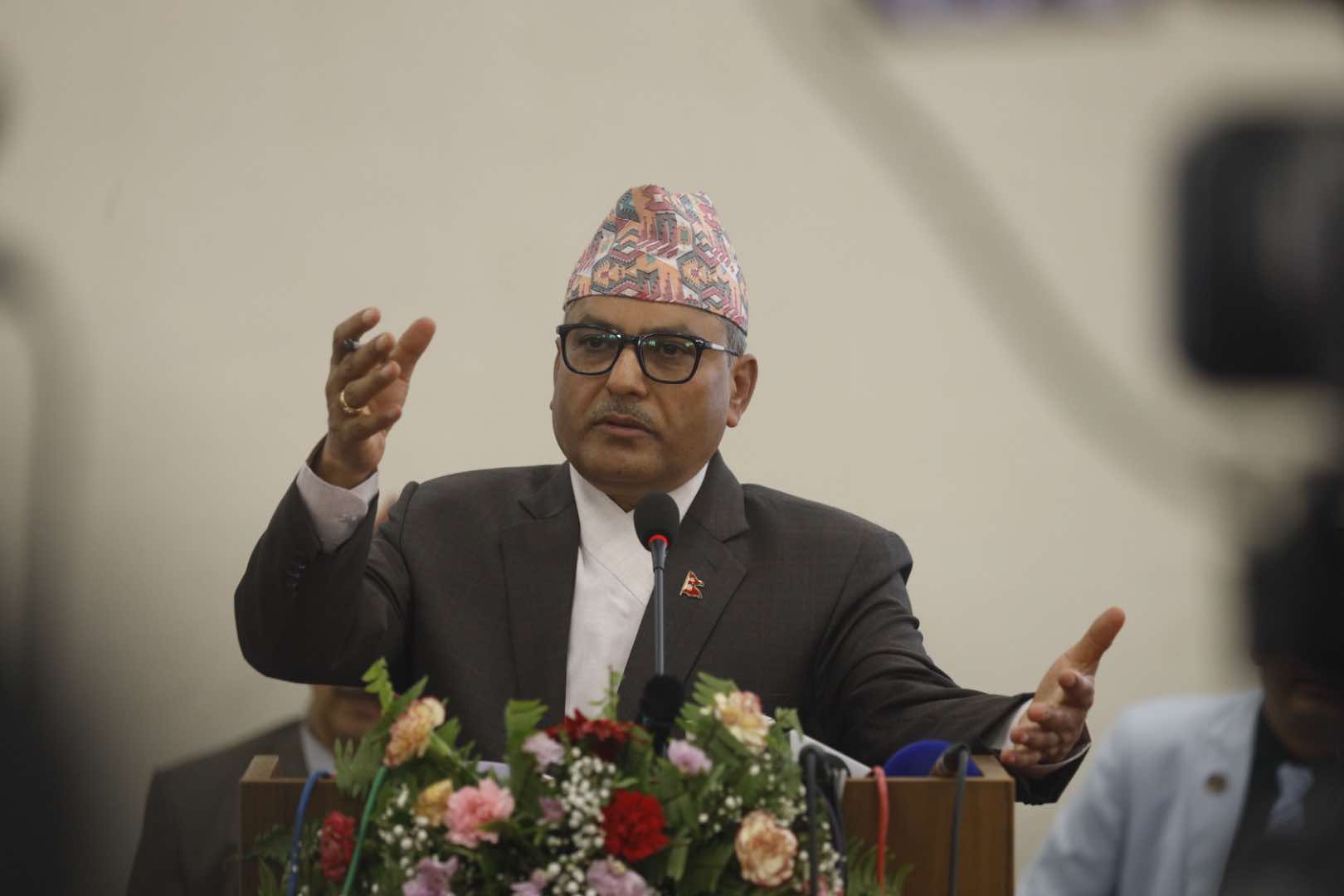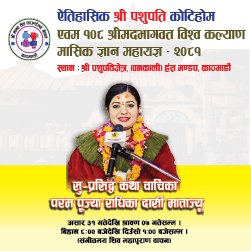Not multi-talented, the need for skilled leadership
We use Google Cloud Translation Services. Google requires we provide the following disclaimer relating to use of this service:
This service may contain translations powered by Google. Google disclaims all warranties related to the translations, expressed or implied, including any warranties of accuracy, reliability, and any implied warranties of merchantability, fitness for a particular purpose, and noninfringement.


If one embraces periodic elections and peaceful transfer of power, one feels that democracy has taken root. In the 33-year period after the establishment of democracy, there were 7 general elections, including two for the Constituent Assembly. Public participation in the election process was encouraging. Even the political parties that are bitterly opposed to the established electoral system joined the election. On the other hand, the government changed 30 times during that period.



After the establishment of the Republic, the government changed 13 times in the 17-year period. Even the farewell of the monarchy was peaceful. In the country, the king, the prime minister have all been handing over power easily when they lost the legitimacy of being in power.
When the election date is announced, a wave of hope and excitement spreads among citizens. Unfortunately, after the results of the election, with the process of forming a new government, the people's enthusiasm started to relax. There is a decision or a political consensus that one of the old leaders who failed in the past will lead the government again. Lafda runs in the section of 'attractive ministry'. It takes time for the Cabinet to be perfected. When the cabinet is complete, old familiar characters dominate. This creates frustration among the people. The government's policies and state management methods are the same. The flame of hope spread during the election period is continuing to fade.
The general public does not trust the established leadership due to instability, administrative delay, corruption, activities against the rule of law and impunity. Even the right decisions taken by the leadership are viewed with suspicion. Citizens suffering from misrule think that the displacement of the established leadership is essential to get relief from the existing situation.
When there is talk of leadership change, those who prefer to live in history, that is, who consider the past as a golden age, point out the need for a multi-talented ruler like Jung Bahadur Rana and King Mahendra. Some advocate an autocratic but selfless 'benevolent dictator'. Extremists insist that the army should hold power. Most of the people of this section preach that the restoration of the monarchy will disrupt the system of governance.
History is a witness, we Nepalis have been ruled by all the above mentioned types of rulers. From the Nepali perspective, saying that the army will kill the power is only an option to replace the king-maharaja who is running the government under the guise of the army. During the time of Jang Bahadur, the so-called Bahubali ruler, the status of citizens was limited to 'Raiti Duniya'. The duty of the raiti dunia was limited to paying taxes to the government. It was the right of the ruling class and their families to live a life of luxury as a disenfranchised peasant. Established by Maharaj Jung Bahadur and operated by his family, this system continued throughout the 104-year long reign.
'Rashtra Nayak' King Mahendra was no different from any other dictator in the world. The nation was his property. Citizens held the status of servants. National wealth, especially forests and precious timber, was distributed at his discretion and compensation was paid to the palace. King Mahendra announced after his ascension to 'break the roots of development'. Members of the royal family became involved in the business sector. Disappearance of anti-panchayats, illegal process and imprisonment were continued. Handcuffed political prisoners were shot dead not only in the forest but also in Jawalakhel on the pretext of 'moving the prison'. Even the rebels who surrendered by laying down their arms were brutally killed by calling them 'unnational elements'. Sleeping rebels were massacred. In spite of that, King Birendra did not abuse the resources and means of the state like his father. He was a selfless dictator of the Nepali version (benevolent dictator).
If a multi-talented ruler would have advanced the nation, the country would have made a lot of progress during the reign of Jung Bahadur Rana and Mahendra. Mind you, the industrial revolution was spreading in Europe when Jung Bahadur took power. In the same period, Japan, which was hidden from the world, laid the foundation stone of progress, following the appearance of Europe. Who stopped Jung Bahadur, who visited Britain and France, to modernize like Japan after the 'Meiji Restoration'? There is no evidence anywhere that His Highness Shri 3 Maharaj of the British Empire was interested only in building physical, administrative and educational infrastructure by following the practices of the British rulers in India. He was troubled that a wave of consciousness had spread among the citizens. He and his successor rulers made the state management system more autocratic and narrow.
Monarchists promote the king as a symbol of national unity. During the reign of King Mahendra and Birendra, the most resounding slogan was 'Our king is dearer to our country than life'. The king was above the country in ranking. In public speeches, 'Kings are common' used to be repeated. In reality, the king was the ruler of all Nepalis. The king did not consider all Nepalis as one. During the period of active leadership of the king for more than three decades, Nepali people were divided into two groups - Pancha and non-national elements. An anti-Panchayat, anti-Raja person was automatically a traitor. Those who did not support the panchayat were opponents in the eyes of the king. How did the king, who only considered the citizens of one section as his people, become a symbol of national unity?
King Mahendra is known as a 'visionary'. The most important decision he made was to build the east-west highway with his own resources, means and resources. The east-west highway connecting Mechi-Mahakali was named 'Mahendra Highway'. In order to complete the construction work as quickly as possible, a strategy was adopted to build a highway in the south flat plot (Madhes) of the Chure mountain range. Even one kilometer of the paved road of the approximately 1,300 km long highway was not built on its own accord as announced by the king. The highway was built in accordance with the great speech of the king, "We will do in 10 years what others have done in 100 years". It took more than four decades to complete the highway. During the lifetime of King Mahendra, the construction of half of Mahendra Highway was not completed.
The 'visionary king' could have established an engineering and health education school that would produce international technical manpower in at least 5/10 years. He built Hotel Solti and De la Annapurna in Kathmandu and Fistel Lodge in Pokhara to generate profits for the royal family members using national resources and resources. The building built for the residence of the royal family in the Narayanhiti palace was sold by the king to the government of Nepal. The only reflection of Nepali art in the new building is the gajur, which was removed from the Gorkha palace and restored. Nepaliness is nowhere to be found in the palaces built by the king, who is said to be the guardian of Nepali art and culture.
The country's population grew from 10 million to nearly 20 million in the three decades that the king had the role of 'national leader'. During the reign of King Mahendra, per capita income rose from $50 to $78 per year. During the reign of King Birendra, the amount increased to 185 dollars. That is, during the 30-year-long autocratic regime, the average income quadrupled when the Nepalese population doubled. Depicting the economic situation of that period, foreign experts said that 'Nepal is a poor country, which is getting poorer every day' and 'Nepal is a country in constant crisis'. Despite all the chaos, distortions, inconsistencies and murders, violence, terror and looting carried out by the Maoists for a decade, in the three decades after the establishment of democracy, per capita income reached 1,230 dollars. That is, per capita income has increased 6 times. The economic development achieved by Nepal after the restoration of democracy is not satisfactory in any way. But after democracy, the development process has accelerated more than in the past.
Achievements achieved by Nepal Under the leadership of Darren Esamigul, a well-known professor of economics at the Massachusetts Institute of Technology, an inquiry study was conducted on the topic of 'democracy's contribution to development'. Based on the progress achieved by 184 countries in the years 1960-2010, the study concluded that 'democracy accelerates the pace of economic development'. This conclusion is consistent with the argument that 'democracy is indispensable for human development' advocated by Nobel Prize winning professor Amartya Sen for decades.
We achieved democracy through tireless struggle, but we could not find a capable leader to guide the nation in the right direction. The victims of the reign of the multi-power leader(s) are looking for another multi-power leader for the nation, which is sure to be futile and counterproductive. The advice of Professor Archie Brown, author of 'The Myth of a Strong Leader: Political Leadership in Modern Age' is relevant for Nepal. According to him, the country needs a leader who can use his wisdom by collecting talent from different disciplines to turn the tide. Such a leader who considers the interest of the nation as the most important, not looking at private and vested interest groups.
 प्रकाशित : फाल्गुन १७, २०८० ०८:४८
प्रकाशित : फाल्गुन १७, २०८० ०८:४८

 २६.१२°C काठमाडौं
२६.१२°C काठमाडौं
















